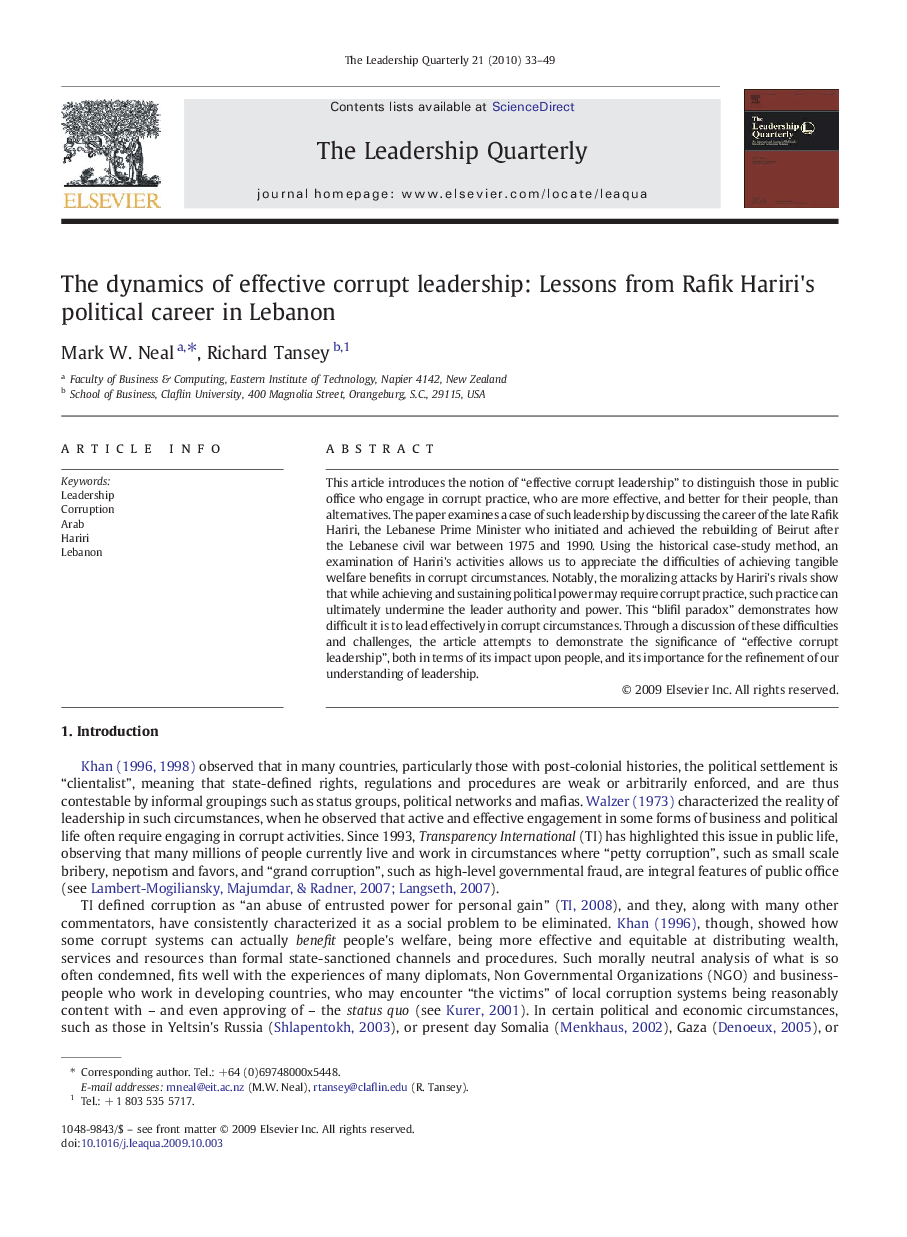| کد مقاله | کد نشریه | سال انتشار | مقاله انگلیسی | نسخه تمام متن |
|---|---|---|---|---|
| 888023 | 913433 | 2010 | 17 صفحه PDF | دانلود رایگان |

This article introduces the notion of “effective corrupt leadership” to distinguish those in public office who engage in corrupt practice, who are more effective, and better for their people, than alternatives. The paper examines a case of such leadership by discussing the career of the late Rafik Hariri, the Lebanese Prime Minister who initiated and achieved the rebuilding of Beirut after the Lebanese civil war between 1975 and 1990. Using the historical case-study method, an examination of Hariri's activities allows us to appreciate the difficulties of achieving tangible welfare benefits in corrupt circumstances. Notably, the moralizing attacks by Hariri's rivals show that while achieving and sustaining political power may require corrupt practice, such practice can ultimately undermine the leader authority and power. This “blifil paradox” demonstrates how difficult it is to lead effectively in corrupt circumstances. Through a discussion of these difficulties and challenges, the article attempts to demonstrate the significance of “effective corrupt leadership”, both in terms of its impact upon people, and its importance for the refinement of our understanding of leadership.
Journal: The Leadership Quarterly - Volume 21, Issue 1, February 2010, Pages 33–49